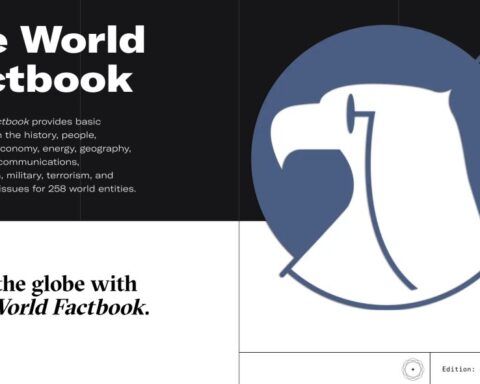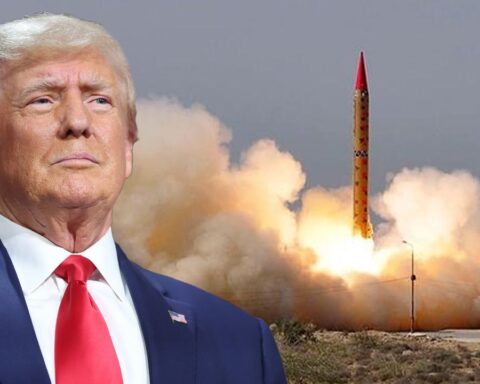President Donald Trump’s foreign policy appears to be based on the idea of spheres of influence and an even balance of power across said spheres. Each has a rich historical pedigree. Trump has reinvigorated the Monroe Doctrine by prioritizing Western Hemispheric security and recognizing that Russia and the nations of Western and Central Europe have a greater interest in Ukraine and Eastern Europe as a whole than does the United States. He also recognizes that in the 21st century, given the shifting global balance of power, the Indo-Pacific is more important to U.S. security than Europe or the Middle East.
The shifting global balance of power is most evident with the rise of China and India, a development that the Atlanticists in the United States and Europe refuse to recognize. The Trump administration has rightfully discarded Wilsonian doctrine—which emphasizes abstract values—in favor of foreign policy realism, which focuses on concrete national interests. American blood should be reluctantly spilled, and American treasure should be expended sparingly, only in the service of concrete American interests. That is what an America First foreign policy is all about.
In his last major iteration of his global geopolitical concept, Sir Halford Mackinder wrote in 1943 in Foreign Affairs about the rise of what he called the “Monsoon powers” of China and India, which he hoped would create a balanced globe of human beings based on spheres of influence. More than two decades earlier, Mackinder wrote Democratic Ideals and Reality (1919) to guide the statesmen at Versailles in their efforts to establish a lasting peace after the cataclysm of the First World War. Mackinder’s advice to the statesmen of the West was to temper their democratic ideals with an understanding of geopolitical realities. His advice, needless to say, was not heeded, and twenty years later an even more destructive global war was fought.
Mackinder’s geopolitics harkened back to the period between the end of the Napoleonic wars in 1815 and the outbreak of World War I. During that time, the great powers jostled for relative advantages, fought relatively small and brief wars, contained and repressed revolutions, and used diplomacy to avoid global conflicts. To be sure, there were significant changes in the European balance of power, with Italian unification in 1861 and German unification ten years later, but the best statesmen of the period ensured that Napoleonic-like global wars did not recur. Great Britain and Russia waged the “great game” in Central and Southwest Asia, Europe’s powers established overseas colonies, the United States sought hemispheric security with the Monroe Doctrine, and after a devastating civil war looked to play an increased global role, while all of the great powers sought spheres of influence in China. Japan opened itself to Western technology and began its rise to great power status.
Henry Kissinger noted in A World Restored (1957) that “the attainment of peace is not as easy as the desire for it.” It is a lesson of history that we never seem to learn. In his study of the peacemakers of the Congress of Vienna in 1815, Kissinger identified “stability,” “order,” and “legitimacy” as the key ingredients of peace. He credited Britain’s Viscount Castlereagh and Austria’s Prince Metternich with rescuing Europe from the chaos of the Napoleonic Wars by reconciling what was just with what was possible. Kissinger described Metternich as the “supreme realist” who once explained his realism by noting that he acted “cold-bloodedly based on observation and without hatred or prejudice.”
Viscount Castlereagh, according to Kissinger, understood that Great Britain fought with others against Napoleon not because of “vague enunciations of principle,” but “on the basis of material considerations in which British interests were obviously involved.” The most important British interest was the geopolitical pluralism of the European continent—in other words, the balance of power. “Castlereagh,” Kissinger explained, “never ceased insisting on moderation, on a peace of equilibrium not of preponderance; on a goal of harmony, not of vengeance.” Castlereagh once told Parliament that Britain will act “when actual danger menaces the system of Europe; but this country cannot and will not act upon abstract principles . . .” Britain, Kissinger wrote, warred “for security, not for doctrine.”
As Metternich and Castlereagh were restoring political equilibrium to Europe, there was rising sentiment in the United States for intervention abroad in South and Central America, Eastern Europe, and Greece, where revolutionary movements attempted to throw off despotic rule. Then, as now, the United States had influential leaders who advocated for the spread of democracy throughout the world. U.S. Secretary of State John Quincy Adams, speaking on July 4th, 1821, warned against a foreign policy based on doctrine instead of national interests. America, Adams said, “goes not abroad in search of monsters to destroy. She is the well-wisher to the freedom and independence of all. She is the champion and vindicator only of her own.” Two years later, in drafting what would become known as the Monroe Doctrine, Adams claimed an American security sphere of influence in the Western Hemisphere.
Attention to spheres of influence guided British policy throughout the remainder of the 19th century, as it waged the “great game” against Russia in Central Asia to protect its interests in India and later in the Far East. British Foreign Secretary and later Prime Minister Lord Palmerston famously noted that Britain had no permanent friends and no eternal enemies, and would conduct foreign policy based solely on Britain’s immutable security interests. Later Prime Ministers such as Disraeli and Lord Salisbury also based their approach to foreign policy on the balance of power, especially after Bismarck engineered German unification between 1864 and 1871.
Disraeli believed that German unification had destroyed Europe’s balance of power because a huge, growing, industrially-powerful and united German state now occupied the center of Europe. Disraeli was correct, but as long as Bismarck controlled German foreign policy, a great European war could be avoided. Indeed, Bismarck was the dominant statesman of the late 19th century. A.J.P. Taylor called him the “undisputed master of the diplomatic art.” “Bismarck’s diplomacy,” Henry Kissinger wrote, “produced a series of interlocking alliances, partially overlapping and partially competitive” that maintained the general peace of Europe for more than two decades. But when Bismarck left the scene in 1890, his successors failed to continue his diplomatic strategies. The great American diplomat and historian George Kennan blamed the resulting First World War on the “decline of Bismarck’s European order.”
As the 19th century gave way to the 20th, Theodore Roosevelt promoted hemispheric security by using diplomacy to gain for the United States control of an isthmian canal in Panama and promoting an expanded version of the Monroe Doctrine. Roosevelt, to be sure, had his jingoistic side, but as president he was a peacemaker, negotiating an end to the Russo-Japanese War, even as he engaged in a naval buildup that was consistent with protecting U.S. interests as a great maritime power. As Henry Kissinger observed, Roosevelt as president “defined America’s world role . . . completely in terms of national interest [and] identified the national interest . . . comprehensively with the balance of power.” His mediation of the Russo-Japanese War reflected his respect for spheres of influence.
As Angelo Codevilla pointed out in his last book America’s Rise and Fall Among Nations, after Roosevelt, U.S. foreign policy took on a Wilsonian aspect that introduced abstract values, ideology, high-sounding doctrines, and a quest for universalism that in many instances superseded realism, spheres of influence, and the balance of power as foreign policy lodestars. For Wilsonians, spheres of influence and the balance of power were and are outdated relics of a less progressive past, and focusing on American national interests is too narrow, too parochial, too selfish. Far too often, our Wilsonian leaders have transformed wars and crises involving U.S. interests into ideological crusades. And far too often, Wilsonian leaders have embarked on wars that have nothing to do with real U.S. interests in the name of abstract ideals.
Realists, like those 19th century statesmen, understand that a multipolar world will have geographic spheres of influence dominated by great powers and that the best we can hope for is, in Mackinder’s words, a balanced globe of human beings. The near century of global peace that they bequeathed to us should engender humility, not hubris, among our policymakers. Spheres of influence and the balance of power are not relics of an outdated past but are instead tools that used skillfully can avoid catastrophic wars.
Source: https://providencemag.com/2025/11/spheres-of-influence-in-the-21st-century-outdated-or-needed/






